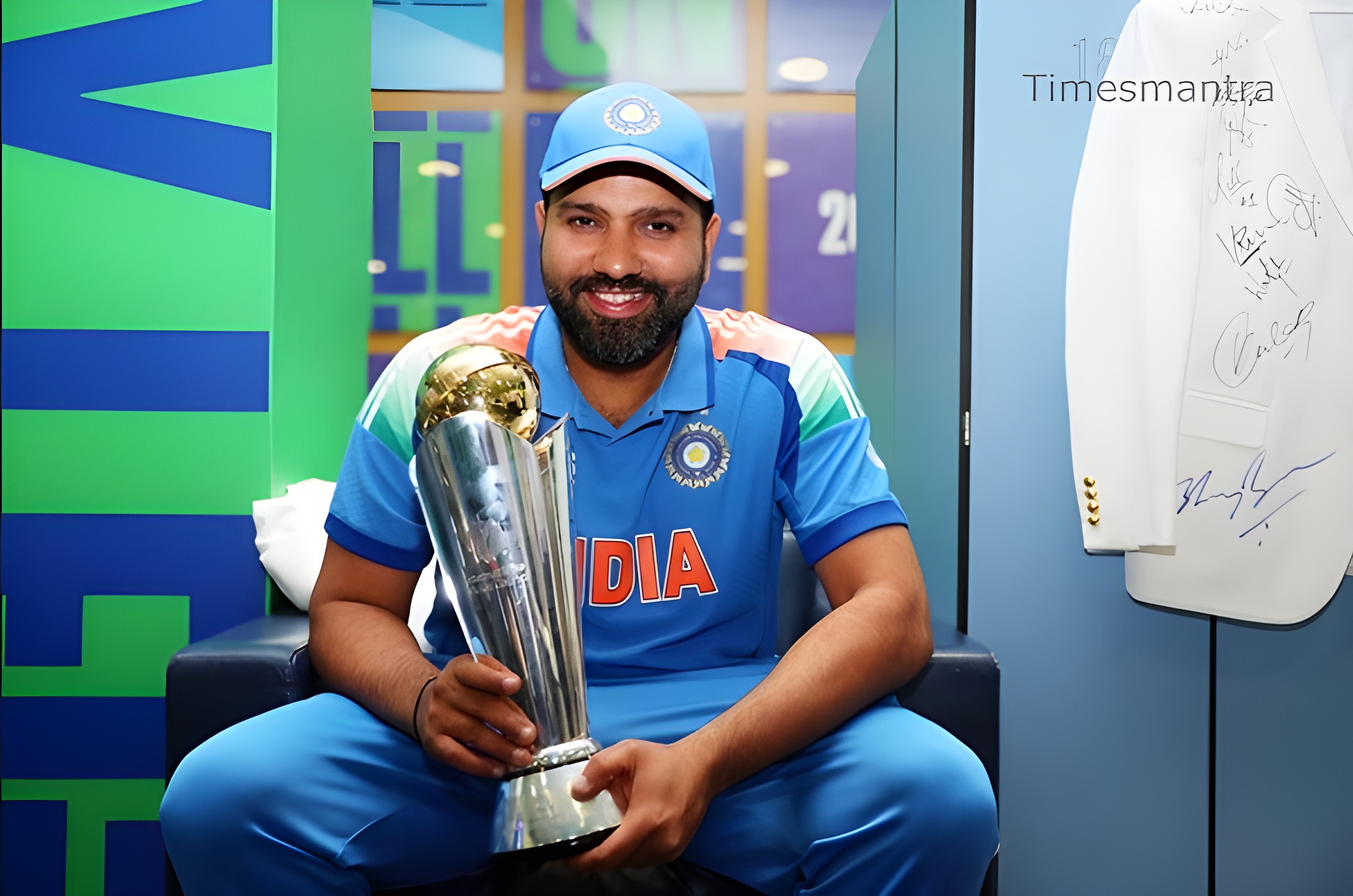Rohit Sharma Becomes India’s Most Successful ODI Captain
October 6, 2025—Rohit Sharma has scripted a new chapter in Indian cricket history, surpassing MS Dhoni to become the country’s most successful One-Day International (ODI) captain with his 76th win in the format. The milestone arrived in emphatic fashion during the third ODI against New Zealand in Dharamsala on October 5, where India romped to a seven-wicket victory, sealing a 3-0 series clean sweep. Sharma’s unbeaten 92 off 80 balls, laced with 10 fours and three sixes, anchored the chase of 268, propelling his win tally to 76 from 85 matches—a staggering 89.41% success rate that eclipses Dhoni’s 110 wins from 200 ODIs (55% rate).
This triumph, under the crisp Himalayan skies of the Himachal Pradesh Cricket Association (HPCA) Stadium, wasn’t just statistical—it was symbolic. Sharma, the 37-year-old opener known as the “Hitman” for his destructive batting, has redefined Indian white-ball cricket since assuming the ODI captaincy in December 2021. His leadership has yielded not only the 2025 Champions Trophy title but also an unbeaten streak in major tournaments, setting a benchmark for tactical acumen and fearless intent. As confetti rained down and the crowd of 25,000 chanted “Rohit! Rohit!”, Sharma raised his bat in acknowledgment, later dedicating the moment to Dhoni: “Mahi bhai laid the foundation; I’m just building on it. This record is the team’s.”
The victory extended India’s dominance in the series, where New Zealand managed 267/8 thanks to Rachin Ravindra’s 89, but India’s bowlers—led by Kuldeep Yadav’s 3/42—kept the total in check. Chasing with ease, Sharma’s knock, in partnership with Virat Kohli’s 58, showcased the depth that has become his hallmark. With the ODI World Cup 2027 on the horizon, Sharma’s record isn’t merely a number—it’s a testament to his vision, resilience, and ability to inspire a generation. In this 2000-word celebration, we trace his captaincy journey, dissect the record’s significance, compare eras, analyze his style, capture fan sentiments, and explore the future. Rohit Sharma isn’t just a captain; he’s the architect of India’s white-ball renaissance.
Rohit Sharma’s Path to ODI Captaincy
Rohit Sharma’s elevation to ODI captaincy was a natural progression, rooted in a decade of IPL triumphs and gradual international grooming. His leadership baptism came in 2013 with Mumbai Indians, where as a 26-year-old stand-in skipper, he guided the franchise to its first IPL title, blending his explosive batting with calm decision-making. Over the next eight years, Rohit added three more IPL crowns (2015, 2017, 2019), amassing 62 wins from 140 matches—a 44% rate that showcased his tactical nous in high-pressure T20 chases.
The BCCI recognized his potential early, appointing him T20I captain in 2021 ahead of the World Cup, where he led India to the semi-finals. His first full ODI series as skipper came against South Africa in December 2021, a 3-0 whitewash that set the tone. By 2022, Sharma unified white-ball captaincy, a move backed by secretary Jay Shah: “Rohit’s IPL pedigree and composure make him the ideal leader for ODIs.” Challenges followed: The 2022 Asia Cup loss to Pakistan and the 2023 World Cup final defeat to Australia tested his mettle, but responses like the 2023 Asia Cup triumph (his first ICC trophy as captain) and the 2024 Champions Trophy victory silenced doubters.
Sharma’s 85 ODIs as captain reflect a 75% win rate in bilateral series, with 42 wins from 56 matches. His tenure has seen India win 12 of 13 home series, averaging 320 runs per innings—up from 280 pre-2021. As Kohli noted post-Dharamsala, “Rohit’s intent changed our ODIs—he bats like a captain, leads like a batsman.”
The Milestone Match: Dharamsala’s Decisive Drama
The record-breaking third ODI against New Zealand in Dharamsala was a masterclass in controlled aggression, a venue that holds special resonance for Sharma—his 2019 World Cup century there announced his white-ball prime. New Zealand, electing to bat after losing the toss, posted a competitive 267/8 on a pitch offering early seam before flattening out. Rachin Ravindra’s fluent 89 off 88 balls, laced with 10 fours and a six, formed the backbone, supported by Daryl Mitchell’s 65 off 60. India’s bowlers, however, struck at crucial junctures: Kuldeep Yadav’s left-arm spin yielded 3/42, including Mitchell’s wicket, while Arshdeep Singh’s 2/45 in his 10 overs kept the scoring rate in check at 5.34.
Chasing 268, India lost Shubman Gill early for 12 to Trent Boult, but Sharma’s arrival ignited the innings. Walking in at 25/1, he unfurled a signature flicked six off Boult’s first ball—a statement of intent that silenced the 25,000-strong crowd. What followed was a vintage knock: Sharma’s 92* off 80 balls blended classical drives with muscular pulls, reaching fifty in 42 balls and his eighth ODI ton on the horizon before holing out. Partnering with Virat Kohli’s composed 58 off 60 (7 fours), Sharma added 115 for the second wicket, steering India to victory in the 40th over with a lofted cover drive off Mitchell Santner for the winning boundary.
The moment of history arrived in the 39th over: With 10 needed, Sharma’s single off Santner triggered the roar—76 wins, Dhoni eclipsed. Celebrating with a helmet raise to the skies, Sharma later said, “The team made it easy—my job’s to back them.” New Zealand captain Kane Williamson gracious in defeat: “Rohit’s class is undeniable—congrats on the record.”
